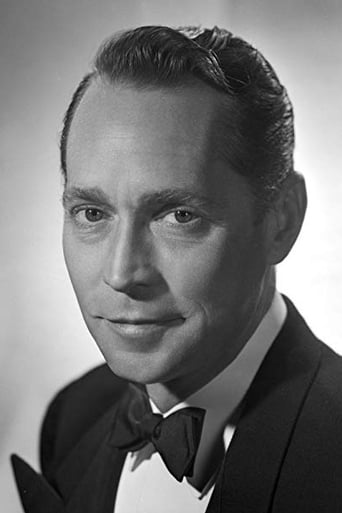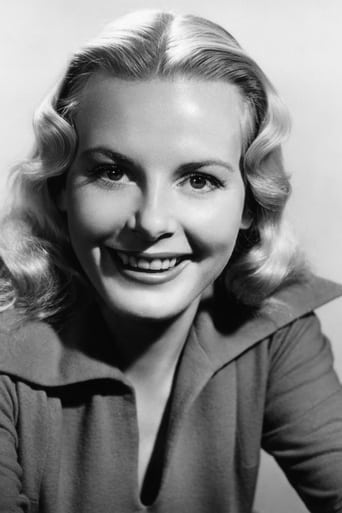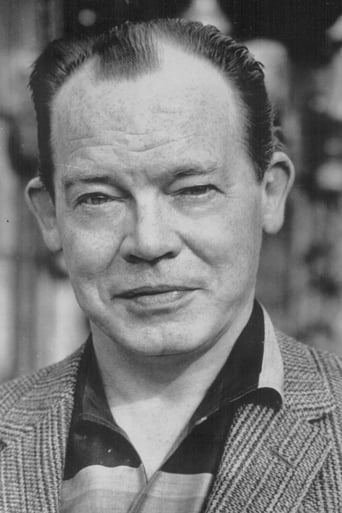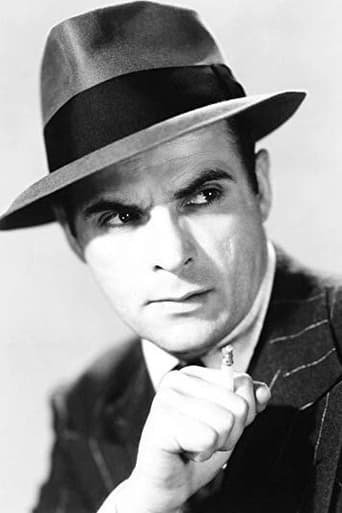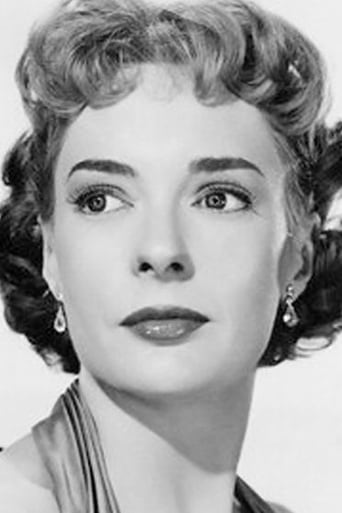classicsoncall
Well I have to say, this was the most interesting mystery flick that made no sense whatsoever that I've ever seen. I actually got more out of viewer posts on this board than the movie itself. That happens every now and then, perhaps one in every three hundred or so films. I'd be willing to give this another go, but it came in a mystery film boxed set of two hundred fifty pictures, and I'm going to get to all the rest of those first.It's uncanny - the picture holds your attention the whole time, and I had to figure something was going to come out of this to tie the whole thing together. Very mysterious, very sleek, thirty five dollars to bail out the cat - that's it! I'm not going to get pretentious and say I spotted all the future stars in their cameos, just Burgess Meredith as the bartender, and he could have been Leonid Kinskey just as easily.Clever stuff here - The Crusaders, the Blue Angel, the Mohawk Political Club, and Molloy (Franchot Tone) named the special something or other. What were the papers hidden in the museum art? I don't know. Neither will you. Maybe next time.
GManfred
This picture tries hard to recommend itself and tries hard to be a good Noir. It really does. And I tried hard to like it and recommend it and give it a good rating. Honest. But it won't let you. The plot is too muddled and the Director is not good enough to put it over.Granted, he had some good actors in Franchot Tone and Myron McCormick. He also had a love interest who was a knockout in Jean Wallace, but she was a chore as an actress - in a climactic scene she flops badly - but what a knockout, to borrow a '40's phrase.Well, that's about it. Confusing plot and a tepid, preachy story. I stuck with it because it was pouring outside. I gave it a rating of 5, but I gave Jean Wallace a 10...aesthetically speaking.
Boba_Fett1138
This movie is almost impossible to follow because of its very muddled story and story-telling. I can't even exactly tell you what this movie is really about. It's almost as if the movie is constantly abandoning its own main plot-line. The story-telling also really isn't helped by its wooden and extremely bad and at times even laughable dialog and second grade actors that deliver the lines.It has some noir ingredients, especially with its visual style, so this movie should also be called a film-noir, even though I wouldn't regard this movie exactly as a full-blood film-noir. As this movie shows, having film-noir ingredients doesn't guarantee that the movie is always a good and intriguing one.One thing the movie does handle well is its tension. It knows how to build up certain sequences, even though you don't always understand what is exactly happening. This is also due to the poor quality of the print. The movie is real dark and grainy in parts, so you really literally can't see what is happening at times. But because the movie features a couple of good and tense sequences doesn't mean that the movie as a whole is a very exciting one. On the other hand it however also not a complete bore, since the movie always maintains a good pace.I am not surprised that this movie is not really a better known one. It's a forgettable film-noir attempt, with a weak story and perhaps even worse story-telling. No, not even the biggest film-noir fans shall enjoy this movie thoroughly.5/10http://bobafett1138.blogspot.com/
Terrell-4
"Even angels can get their wings clipped!" says New York Assistant District Attorney Howard Malloy (Franchot Tone) to good-time girl Barbara Whitfield (Jean Wallace) as he tries to convince her to tell the truth, and of the consequences if she doesn't. Says Barbara, looking him in the eye, "You got the scissors?" It doesn't take long for Howard to trick her into spilling the beans, or at least start to...but Barbara is now scared, really scared. "Oh, Howard," she cries, "hold me, help me..." And these are the good lines. If the price is right, and I'd say no more than $3.99 used is the right price, Jigsaw will give you an earnest, disorganized ethics lecture disguised as a crime story. It has two good points. First, you'll have Franchot Tone to watch, an actor I've always considered one of the best in Hollywood. Tone could make even a mundane and slightly ridiculous character seem interesting. He had class, charm, screen presence and top-drawer acting ability. Unfortunately, he had a private life that shredded his dignity. (He got in a fight with actor Tom Neal over Barbara Payton and wound up beaten into a coma with a smashed cheek bone. Payton married him when he recovered and then left him seven weeks later for Neal.) He also was one of those actors, like Gary Cooper, who simply didn't age well. But he was such a classy actor he could even bring some interest to weak tea like Jigsaw, as well as to a number of lesser but intriguing movies like Phantom Lady. Second, you can play the amusing Hollywood game of Spot the Star Cameo. In unbilled bits that last a second or two are such luminaries as Burgess Meredith, John Garfield, Marsha Hunt, Everett Sloane and, I'm told, Henry Fonda and Marlene Dietrich. I must have blinked when the last two were on and I'm not about to watch Jigsaw again just to verify them. Why would these stars do walk-ons in such a clunky, disjointed movie as this? Probably because they had no idea it would turn out so poorly. Primarily, I suppose, because Jigsaw is a Hollywood lecture on the need to fight extremism. Remember, this movie was made in 1949. The anti-Communist fear-mongers were crawling out from under America's beds to frighten any who didn't believe they way they were told to believe. The Hollywood studio bosses were easily and quickly intimidated; the blacklist which ruined the careers of many actors, screenwriters and directors was gathering steam; and people were being called on to defend before Congress who their friends were, how they voted and what organizations they may have supported or joined. Jigsaw delivers a lot of verbal shots, however heavy-handed, at the reactionary forces. The shots are mind-numbingly preachy. Organizations and people like the Crusaders, says one character to Malloy, "exploit the anti-this and anti-that...and any race or religion they can exploit to use as a scapegoat. Ignorance pays off, and the profits can climb into the millions." He's referring to all the cash that true believers spend on membership fees, annual contributions, badges and T-shirts. All this is true, but the righteousness of the lectures is so earnest it sends us yawning. The plot is about a shadowy group called the Crusaders, which has been organizing itself into a power center. Its poster shows a handsome Aryan lad against the waving American flag. Their slogan, "Join The Crusaders -- Fight for America!". The implication is clear...the Crusaders will be against anyone who doesn't look, sound or believe the way that Aryan poster boy does. When a columnist is killed while looking into the Crusaders, Howard Malloy finds himself appointed a special prosecutor. He also finds himself in a noxious mess that combines crime, nativism and the reactionary beliefs of some of the privileged few. In the crime category is Marc Lawrence as Angelo Agostini. Lawrence never quite made it out of the journeyman actor category, but he was always good as a crook, a Gestapo agent or a killer. He has a satisfying role in Jigsaw. In the privileged category is Winifred Lenihan as Mrs. Grace Hartley, a smart, saucy and aristocratic society matron, a mover and shaker, wealthy, gracious and...well, don't turn your back on her. Lawrence and Lenihan almost make up for the others.
